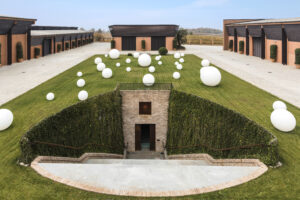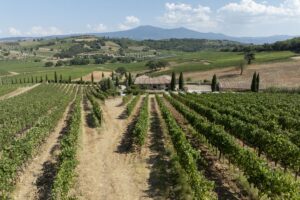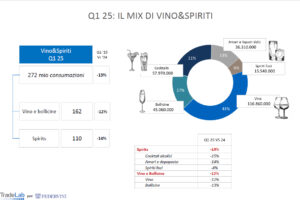Sustainability must first of all be the philosophy of the modus operandi to be a real value, and then in order to be narrated it must also be certified. It is a complex procedure for a single company, and even more so for a territory, especially if it happens to be one of the largest territories in Italy. However, leaders must set themselves ambitious goals, which is what the Consortium for the Protection of Prosecco DOC, led by president Stefano Zanette and by the director Luca Giavi, has done. The organization governs the territory that is the driving force of Italian wine. The denomination, in all likelihood, by the end 2021, will break the record of 500 million certified bottles valued at 2.4 billion euros for consumption in 2020. Further, it aims to certify the territory as Sustainable Denomination, and certify the companies and productions, respectively, Organization and Sustainable Product, according to the “Equalitas” standard, which is based on three pillars: environment, society and economy. To be able to boast the Equalitas certification of Sustainable Designation for Prosecco, is a highly important objective. And, to achieve it, at least 60% of the surface of the appellation must meet the requirements of the standard, which means 14.670 hectares out of 24.450 hectares. “Due to the complexity of the production fabric, the Consortium”, explained a note, “among various operational objectives, there is also that of managing this sustainability system in IT terms, in order to make the exchange of information and data collection efficient, as well as the related aggregations”. The standard will be gradually implemented along the supply chain, explained the Consortium, and it is based on pilot projects and case studies aimed at creating the services and tools necessary to make the required measures their own, and furthermore to be able to monitor indicators and improvement plans. In order to respond to the environmental chapter of Equalitas, the Consortium along with adopting a vine cultivation protocol respectful of the natural context, currently based on the national quality system of integrated production (SQNPI), the design provides for the analysis of biodiversity and calculating environmental indicators. These include the carbon footprint (estimate of greenhouse gas emissions emitted) and water (the consumption of water) in the production phase, thanks to collaboration with specialized companies, with which integrated systems have been created to support employees. To this purpose, the Consortium will provide specialized assistance to transfer the know-how necessary to make companies more and more autonomous in the various stages of the process. The system conceived in this way, allows the flow of data starting from the vineyard to pass to the processing company and finally reach the Consortium for the final collection of indicators relating to the Denomination. In terms of biodiversity, the analyses will be conducted on uniform areas while the environmental path will also include a training program focused on precision wine growing structured for winemakers to be directly involved.
The concept of sustainability on the social and economic side will be extended by adopting a code of ethics along the entire supply chain, paying special attention to the professional growth of employees and not forgetting to continue the search for constructive communication with the local community. More specifically, mapping of the social sustainability context within the reference area has been planned together with the University of Padua including activating a listening system and facilitating communication in the territory. The aim, therefore, is to develop useful tools for companies to achieve the best relationships with their employees, neighbors and local communities, using the appropriate digital channels to manage reports from outside. Finally, on a purely economic level, the Consortium has launched a data collection system from companies as well as from public and private agencies, to be able to draw up economic balance sheets for the entire Denomination, and along the entire production chain. This information will also have the task of supporting choices related to production management to develop volumes, subject to the development of material and immaterial values, such as environmental and ethical-social sustainability.
Copyright © 2000/2025
Contatti: info@winenews.it
Seguici anche su Twitter: @WineNewsIt
Seguici anche su Facebook: @winenewsit
Questo articolo è tratto dall'archivio di WineNews - Tutti i diritti riservati - Copyright © 2000/2025








































































































































































































